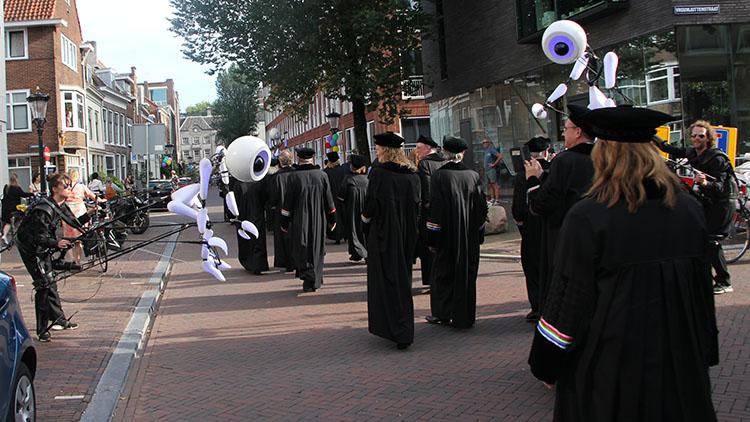Impact is an unsuitable metaphor
Social involvement is different from striving for impact

Social impact is a core value at this university. That was emphasised once again in the recent ceremony to open the academic year. Of course, we welcome the university’s commitment to community engagement as we too want to contribute to solving important issues whenever possible. However, as far as we are concerned, "impact" is a metaphor that is not suited to be an umbrella term.
Intended effect
The original and partly negative meaning of impact is a semantic problem. In Physics, impact refers to a violent force within a short period of time. A collision of two objects, for example. The term is often used to refer to the damage resulting from such a collision. In a transferable sense, impact refers to the effect of an event, such as the consequences of a violent episode on a person’s life.
Another issue with impact thinking has to do with science philosophy and ethics. This metaphor suggests that science can unilaterally have an intended effect on society. History shows that science can do that sometimes but that does not mean we can expect a certain effect in advance. Meaningful change in society does not only require the knowledge and suggestions that come from science. Although science sometimes tries to predict or measure certain outcomes, that is not the same as actually causing social changes as those are usually outside of scientists’ realm of influence.
Part of society
The biggest problem with impact thinking is the implicit assumption that, as a practice, science is separate from the society it studies, and only influences it if it intends to do so, such as when it shares knowledge or engages in partnerships and interventions. Science may sometimes seem like an ivory tower in both an institutional and a cultural sense, but it is part of society in every way.
The university's buildings are on the same earth. Students and staff are living in the same society, and they are equally hampered by transport problems, pandemics, or economic crises, to name but a few examples. Moreover, we are not only funded but also fed by the political landscape of research agendas.
Science in practice
After all, today’s science is part of how today’s society is organised. That’s a good thing because that is how we always synchronise with the world in which the scientific practice has its place, as Sanne Akkerman and Arthur Bakker wrote in 2021 in the open-access journal Educational Researcher. It is important to be aware and transparent about this as only then can science make its special contribution. By questioning and qualifying, or by concluding and stating where it seems necessary.
With this emphasis on social orientation, we believe that the university has formulated an important priority: that we must be explicitly concerned with what is happening around us. We also have to be more conscious than ever of how, where, why and for what purpose we aim to use our sparse attention and resources. However, that question is not about impact, but rather about engagement and relevance.